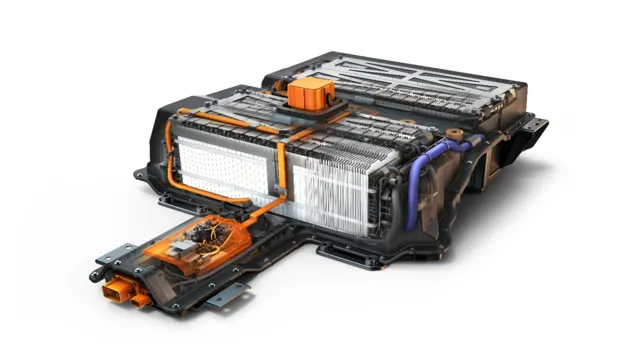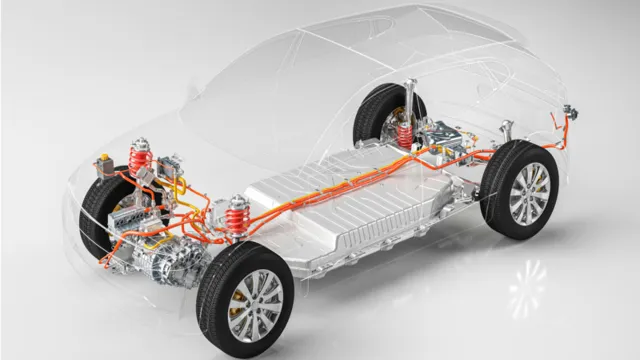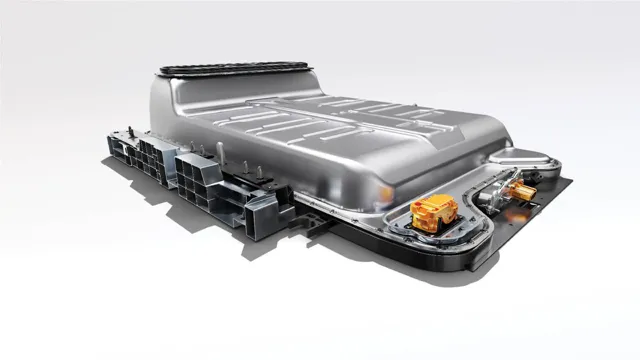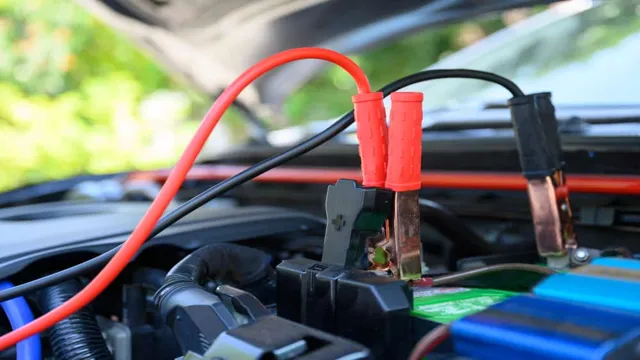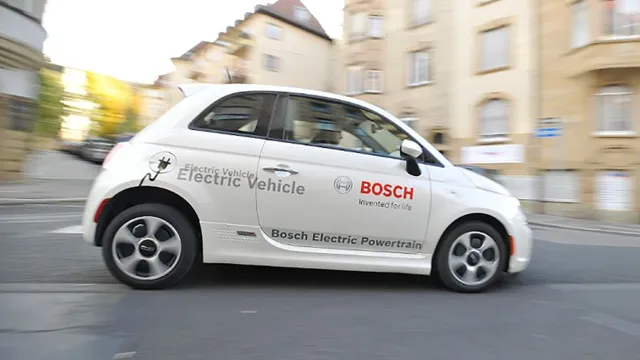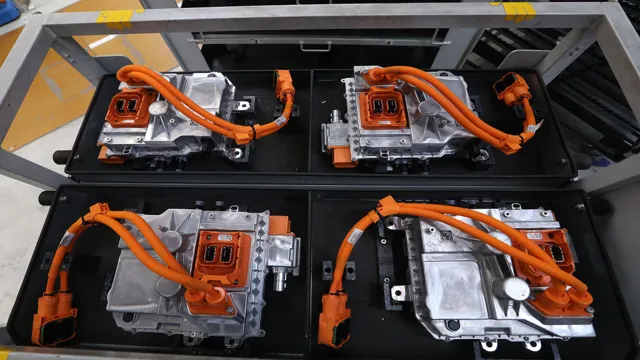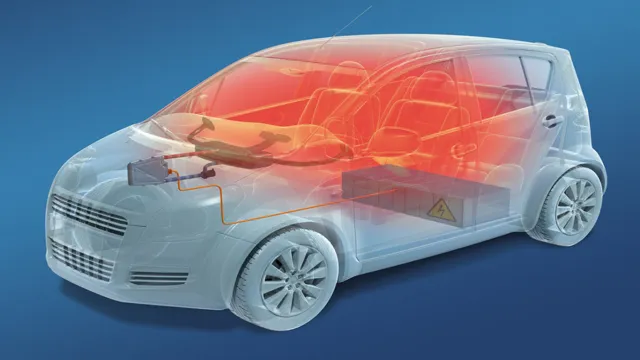6 Groundbreaking Developments in Electric Car Battery Technology You Need to Know About
Electric car battery breakthroughs have long been sought after as one of the keys to unlocking the promise of electric vehicles as a sustainable and efficient alternative to traditional gasoline-powered cars. With the advent of new technologies and the increasing demand for ecological transportation solutions, exciting advancements have been made in the field of electric car battery research. These breakthroughs hold the promise of not only making electric cars a practical choice for everyday driving needs, but also opening up completely new possibilities for transportation and energy storage alike.
In this blog, we will explore some of the most promising recent developments in electric car battery research, and how they stand to revolutionize the way we think about sustainable transportation.
The Importance of Battery Breakthroughs
Electric car battery breakthroughs have become increasingly important as the demand for electric vehicles continues to rise. New advancements in battery technology are allowing for longer driving ranges, faster charging times, and reduced costs. These breakthroughs are crucial for making electric vehicles more accessible to the public and reducing our dependence on fossil fuels.
Imagine being able to drive across the country without worrying about the battery life of your electric vehicle. With these battery breakthroughs, that possibility is becoming a reality. Plus, with reduced costs, electric vehicles will become more affordable for consumers, further increasing their adoption.
Overall, the importance of these advancements in battery technology cannot be overstated, as they are essential for the future of sustainable transportation.
Increased Driving Range
Battery breakthroughs have become increasingly important in the development of electric vehicles, especially when it comes to driving range. As electric cars become more popular, consumers are seeking vehicles with longer ranges to accommodate their daily commutes and weekend trips. Fortunately, advancements in battery technology have been able to deliver just that.
With innovations like solid-state batteries and advancements in lithium-ion batteries, electric vehicles are on track to deliver driving ranges that are just as impressive as their gasoline-powered counterparts. And as battery technology continues to improve, the potential for extended driving ranges will only become greater. These breakthroughs will not only provide peace of mind for drivers, but they will also pave the way for a more sustainable future.
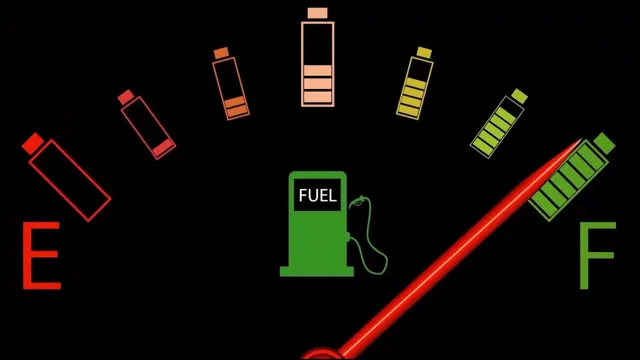
Decreased Charging Time
As technology advances, the importance of battery breakthroughs becomes more apparent. One such breakthrough that has been eagerly anticipated is decreased charging time. This is especially important in today’s fast-paced world, where every second counts.
A battery that can be charged quickly means less downtime for electronic devices and more productivity. Imagine being able to charge your phone from zero to full in just a few minutes! This is no longer just a dream, thanks to advancements in battery technology. Scientists have developed new materials and processes that allow batteries to charge at much faster rates than ever before, without compromising their energy storage capacity.
This breakthrough has implications not just for personal electronic devices, but also for electric cars, where long charging times have been a major barrier to adoption. With faster charging times, electric car owners can spend less time charging and more time on the road. All in all, decreased charging time is a game-changer that will make our lives easier and more productive.
Recent Advancements in Battery Technology
Electric car battery breakthroughs have become a hot topic in recent years, as more and more people shift towards greener modes of transportation. Fortunately, there have been several recent advancements in battery technology that may help us achieve this goal. For starters, researchers have found ways to increase the energy density of lithium-ion batteries, which is crucial for extending the range of electric cars.
Additionally, solid-state batteries are being developed as a possible replacement for traditional lithium-ion batteries, as they have the potential to be safer, more powerful, and longer-lasting. Moreover, scientists have even discovered a way to extract lithium from seawater – a virtually unlimited source of the metal that could help to lower costs and reduce environmental impact. With these exciting developments in electric car battery technology, we may be closer than ever to achieving a truly sustainable future.
Solid-state Batteries
Solid-state batteries are the future of battery technology and have been gaining popularity in recent years due to their numerous advantages over traditional lithium-ion batteries. These batteries use a solid electrolyte instead of the traditional liquid electrolyte, making them safer, longer-lasting, and more energy-dense. Solid-state batteries are also less prone to catching fire or exploding compared to conventional batteries, making them safer for use in consumer electronics and electric vehicles.
Additionally, these batteries have a longer lifespan, can charge faster and last longer on a single charge. With such advantages and numerous advancements being made in the technology with better conductors and cathodes, solid-state batteries have a bright future in powering the world.
Lithium-Silicon Batteries
Lithium-silicon batteries are a recent advancement in battery technology that promises to revolutionize the way we power up our devices. These batteries are made up of a mixture of lithium and silicon, which allows them to store more energy than traditional lithium-ion batteries. This makes them perfect for use in electric vehicles, smartphones, and other high-power devices.
One of the main advantages of lithium-silicon batteries is their high energy density. This means they can store more energy in a smaller space, which is essential for electric vehicles that require long-range capabilities. Additionally, these batteries are less prone to overheating, which is a common problem with traditional lithium-ion batteries.
Despite their many benefits, there are still some challenges that need to be addressed before lithium-silicon batteries become widely used. For one, they tend to degrade quickly, which can reduce their lifespan. However, researchers are constantly working to overcome these issues and make this technology more practical and cost-effective.
In the future, we can expect to see more and more devices powered by lithium-silicon batteries. The possibilities are truly endless, and this innovation could change the way we think about energy storage and consumption. As we continue to seek out sustainable and efficient ways to power our lives, advancements in battery technology like this one bring us one step closer to achieving our goals.
Graphene Batteries
Battery Technology, Graphene Batteries In recent years, there have been many advancements in battery technology, and one of the most promising innovations is graphene batteries. Graphene, a material made up of a single layer of carbon atoms, is incredibly strong, lightweight, and conductive. These properties make it an ideal material for creating high-performance batteries that can be used in a variety of applications.
Graphene batteries have many advantages over traditional lithium-ion batteries, including faster charging times, higher energy density, and longer lifetimes. They are also more environmentally friendly, as they do not use toxic or flammable materials. Additionally, graphene batteries have the potential to revolutionize the way we store and use energy, as they can be used in everything from smartphones to electric cars.
With continued research and development, graphene batteries have the potential to play a significant role in powering our lives in a more sustainable and efficient way.
Promising Future for Electric Cars
The electric vehicle market is experiencing a promising surge in innovation, with recent developments in battery technology leading to longer-range and more efficient electric cars. Electric car battery breakthroughs have been fueled by advancements in lithium-ion batteries, which can now hold more energy and have a longer lifespan. Additionally, new battery chemistries using materials such as solid-state lithium-metal are being developed, promising even greater potential for electric vehicle batteries.
With the increasing push towards sustainability and the growing demand for electric vehicles, the future looks bright for this emerging technology. As more research and investment go into electric vehicle development, we can expect continued growth and improvements in the industry. Soon enough, electric cars may become the norm, revolutionizing the way we think about transportation.
Reduced Cost
The reduced cost of electric cars is paving the way for a promising future. With advancements in technology and increasing demand, electric cars are becoming more affordable. This is driven by decreasing battery costs, which make up a significant portion of the total price of an electric car.
The increasing popularity of electric cars has also led to more competition among manufacturers, resulting in lower prices. In addition, governments around the world are providing incentives to encourage the adoption of electric cars, further reducing their cost. Despite these cost reductions, however, electric cars still require a significant upfront investment.
But as more people adopt electric cars and the technology improves, their cost will continue to decrease over time. Ultimately, the reduced cost of electric cars is a positive sign for the future, as it makes clean, sustainable transportation accessible to more people than ever before.
Increased Sustainability
Electric cars are quickly becoming a promising solution to the world’s increased sustainability efforts. With the rise in environmental concerns, electric cars have emerged as a clean and eco-friendly alternative to traditional gas-powered vehicles. These cars operate using electric motors powered by rechargeable batteries, leaving behind zero emissions and reducing the carbon footprint.
Furthermore, the reduction of dependency on fossil fuels significantly impacts the environment in a positive way. Developers in the automotive industry are constantly improving the technology behind electric cars, making them more efficient and affordable, with an increased possibility to be integrated into everyday life. The future is looking bright for electric cars, and it’s no doubt that we will see more of these green transportation solutions on the roads in the near future.
The Road Ahead
The future of electric cars looks brighter than ever, thanks to recent breakthroughs in battery technology. Scientists and engineers have been working tirelessly to develop batteries that are more efficient, longer-lasting, and cheaper to produce. One of the most promising developments is the use of silicon anodes in place of the traditional graphite ones.
Silicon anodes can store up to ten times more energy, which means that electric cars could travel even further on a single charge. Another exciting development is the use of solid-state batteries, which are safer and faster to charge than liquid electrolyte batteries. These advancements are not only beneficial for the environment, but they could also make electric cars more accessible to the general public.
With the demand for electric cars increasing, automakers are investing heavily in research and development to stay ahead of the game. It’s clear that electric cars are the way of the future, and these battery breakthroughs will be the driving force behind their success.
Conclusion
In the race to advance electric car technology, battery breakthroughs hold the key to success. From faster charging times to longer ranges, scientists and engineers are constantly pushing the boundaries of what’s possible. But while the future of electric vehicles looks bright, it’s important to remember that innovation never stops.
So keep your eyes on the road and your mind open to new possibilities – because with electric car battery breakthroughs, anything is possible.”
FAQs
What are some recent breakthroughs in electric car battery technology?
Recent breakthroughs in electric car battery technology include solid-state batteries, dry electrodes, and lithium-sulfur batteries. These advancements promise longer driving ranges and faster charging times for electric vehicles.
How do solid-state batteries differ from traditional lithium-ion batteries in electric cars?
Solid-state batteries use a solid electrolyte instead of a liquid one, which makes them safer, more energy-dense, and longer-lasting than traditional lithium-ion batteries. They also don’t need to be cooled and are less prone to fires.
What are dry electrodes and how could they change the future of electric cars?
Dry electrodes are carbon-based electrodes that can be 3D printed and don’t need a glue-like binder to hold them together. This allows for faster and cheaper production of batteries, which could help accelerate the overall shift to electric vehicles.
Are there any downsides to lithium-sulfur batteries, another recent breakthrough in electric car battery tech?
One downside of lithium-sulfur batteries is that they have a shorter lifespan than lithium-ion batteries. They also tend to break down over time, which can cause them to lose efficiency and require replacement sooner. However, researchers are working on ways to address these issues and improve the technology.

